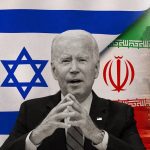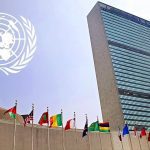The mutual summoning of ambassadors by Tunisia and Morocco on 26 August against the backdrop of President Kais Saied’s receiving Polisario leader Brahim Ghali at the Tunis-Carthage Airport to participate in the Eighth Tokyo International Conference on African Development (TICAD8) and Rabat’s consequent cancellation of its participation in TICAD8 came to increase fissures in the Arab Maghreb Union and perpetuate polarization within the Maghreb circle.
Tunisia has long pursued the policy of appeasement on the Western Sahara dispute, considering it an internal affair. However, the official reception of Ghali and the subsequent meeting between President Saied and Ghali reflect Tunisia’s alignment with the Sahrawi Arab Democratic Republic, a position that would give rise to tensions in the Morocco-Tunisia relations, with the Western Sahara dispute considered the main driver for Moroccan diplomacy.
Divergent Motives and Volatile Context
The shift in the Tunisian position on Western Sahara from positive neutrality since the 1970s to official alignment with the Polisario Front, evidenced by the reception of the Polisario leader Brahim Ghali by the Tunisian President, comes in a complex and interwoven context governed by divergent motives as follows:
- The National and Regional Security Equation in Light of Moroccan-Israeli Normalization: The remarkable development of the diplomatic, political, economic, and military relations between Rabat and Tel Aviv since the restoration of relations between them at the end of 2020 has disrupted calculations of other regional countries, especially the neighboring countries (e.g. Algeria and Tunisia), given the pressure this development places on national security dimensions of these countries, particularly in view of the military partnership culminated in signing a memorandum of understanding in November 2021 to regulate mutual security relations between them, the establishment of a Moroccan-Israeli joint military committee in March 2022, and the agreement on the transfer of military technology and promoting intelligence cooperation between them in light of the visit of the Israeli Chief of Staff to Rabat on 19 July 2022. This path largely portends legitimization of the Israeli existence in the Maghreb, as a gateway to Israeli penetration deep into Africa. Tunisia’s rejection of normalization with Israel drove it to consolidate partnership and cooperation with Algeria towards limiting Israel’s penetration into the Maghreb region that affects its interests.
- Economic Pressures, Tunisian-Algerian Rapprochement, and the Energy Crisis: Perhaps one of the drivers for this rapprochement is the critical economic situation in Tunisia with respect to securing energy sources, raw materials, or production inputs. In light of the global energy crisis, Tunisia is endeavoring to secure its imports of natural gas from Algeria, particularly given the electricity crisis it is witnessing. In 2022, Tunisia’s bill for gas purchases from Algeria amounted to $2.6 billion. This intensified Tunisia’s dependency on Algerian gas. Further, there is the financial aid that Algeria offers Tunisia, including financial aid that amounted to $300 million in December 2021. This prompted Tunisia to align with Algeria on Western Sahara.
Multiple Consequences
The Tunisian-Moroccan diplomatic crisis has multiple consequences, reflected in the following:
- Reducing the Opportunities of the Western Sahara’s Autonomy Initiative: The Tunisian alignment with Algeria on the Western Sahara dispute and its official support for the leaders of the Polisario Front implies its rejection of the Moroccan proposal for autonomy of Western Sahara under Moroccan sovereignty. This raised concerns of Rabat, particularly it comes in tandem with developments in Algeria’s diplomatic relations with Europe, especially France and Italy, as has been evidenced by the expansion of the security, military, and economic partnerships, including primarily the energy file. There is also Mauritania’s neutral stance on Western Sahara and the indecision of partner countries of Morocco (most notably Israel and the United States of America) about its sovereignty over Western Sahara. All these factors bring back the regional balance of power to be shared between Algeria and Morocco, thus undermining Rabat’s international efforts to penetrate the European circle, geared towards co-opt European countries with regard to its initiative for the autonomy of Western Sahara.
- Creating a New Theater for Regional Enticements: Considering the transformations in the regional and international scene brought about by the Ukraine war, countries of the world are racing to rebuild alliances that are becoming centered on the energy factor. So, the traditional policy of building cross-border alliances is now undergoing a sea change, with strategic energy and economic interests governing relations between countries. Algeria’s geostrategic location, its substantial energy resources, particularly natural gas, and its involvement in regional agreements (with Nigeria and Niger) to transmit natural gas to Europe, enabled it to gain weight in the regional energy equation, giving it a room to maneuver with the European Union. Overall, this complex equation will affect Morocco’s energy competitiveness, thus limiting its economic influence in West Africa.
In Africa, the tug-of-war and polarization outside the Moroccan circle has been amply demonstrated in Umaro Sissoco Embaló, President of Guinea-Bissau and the current chairman of the Economic Community of West African States (ECOWAS) leaving TICAD8, in protest against the participation of the Polisario Front in the summit, which reinforces the possibility of transition of alliances and rifts beyond North Africa.
- Growing Polarization and Declining Coordination in the Face of Regional Challenges: The contradictions and the diplomatic dissonance could cause a political rift in the positions of the Maghreb Union and North African countries, impacting regional files that have a security dimension, including primarily the Libyan crisis and terrorism in the Sahel and Sahara. This weakens regional military coordination and promotes the proliferation of extremist organizations and groups across borders. This tension makes resolving the Moroccan-Algerian dispute over the Western Sahara under the umbrella of the Maghreb Union difficult, given the lack of a geographical mediator. The official reception of the Secretary-General of the Polisario Front in Tunisia reflects Tunisia’s absolute alignment with Algeria, which could bring about a sharp decline in the future of relations in the Maghreb and significantly weakens the Arab Maghreb Union.
Despite Morocco’s prior acceptance of the presence of a representative of the Polisario Front in the TICAD forum, Rabat is concerned about the development in the Tunisian-Algerian position which marks a paradigm shift, reflecting the diplomatic weight of Algeria, particularly in view of the deeply-rooted Tunisian-Algerian relations. Perhaps this will prolong the Tunisian-Moroccan tension and give rise to intensive visits and broader collaboration between Rabat and Nouakchott in an attempt to co-opt the latter to receive its support, which could give rise to polarization and tug-of-war that will reflect negatively on the interests of the Maghreb Union states, with other countries in the region (Israel, Iran, and Turkey) capitalizing on these rifts to establish foothold in the Maghreb.
The failure of the meeting of Arab foreign ministers to contain and address the Western Sahara crisis complicates the Morocco-Tunisia relations and dampens the prospect of addressing it in the upcoming Arab summit in Algeria. The coming period will likely witness more political and economic tensions between Morocco and Tunisia, with the Sahara dispute serving as the glasses through which Morocco views the world and the main criterion for measuring the nature of Moroccan relations with other countries of the world.
In short, the restoration of Tunisian-Moroccan relations is subject to broadening Algerian-Moroccan understanding. The announcement of the participation of the King of Morocco Mohammed VI in the upcoming Arab summit in Algeria may give rise to the resumption of Moroccan-Algerian relations and defuse the crisis between them, contributing to containing the crisis between Rabat and Tunis, provided that Moroccan-Algerian relations move on a positive path.













